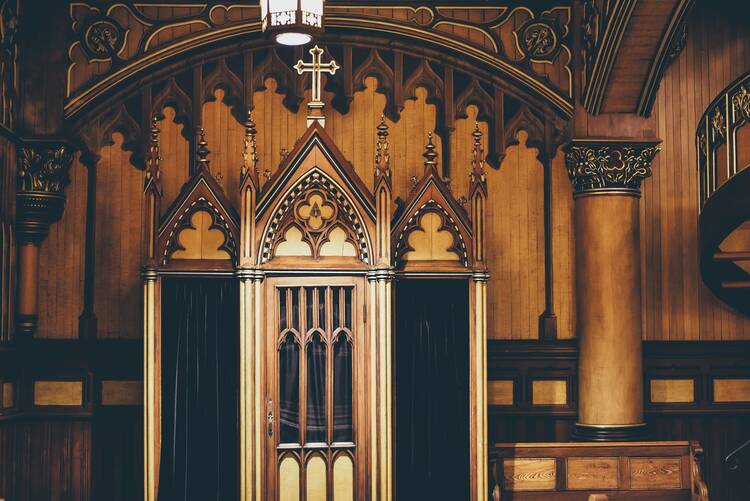A Reflection for Monday of the Second Week of Advent
You can find today’s readings here.
“Which is easier, to say, 'Your sins are forgiven,' or to say, 'Rise and walk'?” (Lk 5:23)
I don’t know about you, but I admit I’m skeptical of arguments for Christianity based on Jesus’ healing miracles. I’ve never personally witnessed a miracle; they don’t happen in my daily life in the way the Gospels describe them.
Which is why I love this dramatic account from Luke about the friends of a paralytic who, not able to push through a crowd, literally climbed onto a roof to get access to Jesus. Whatever Jesus was saying in the house to draw such a crowd, Luke doesn’t tell us. Evidently, it wasn’t nearly as important as the effort made by the stretcher-bearers.
Jesus heals their friend, the paralytic, but only to confirm the first miracle he performed that day, forgiving him his sins. That miracle was not physical, not visible, but it was just as real. Jesus affirms the stretcher-bearers’ sincere gesture of faith. And that’s the point of the story.
For most of our church’s history, Catholics have thought about the forgiveness of sins within the context of the sacrament of reconciliation. The confessional is where sins are repented and forgiven. More recently, Pope Francis has stressed the pastoral sensitivity demanded of priests who hear confessions. In 2013, he famously wrote that “the confessional must not be a torture chamber but rather an encounter with the Lord’s mercy which spurs us on to do our best.” Since then, he has consistently urged priests not to act as arbiters of God’s grace, but to forgive, always. He even called forgiveness “a human right.”
This past summer, the pope was challenged directly by a handful of cardinals who believe his comments misrepresented the church’s teaching that repentance is a condition for absolution. Through his newly appointed doctrinal chief, Cardinal Víctor Manuel Fernández, the pope responded saying, “There are many ways to express regret. Often, in people who have a very wounded self-esteem, pleading guilty is a cruel torture, but the very act of approaching confession is a symbolic expression of repentance and seeking divine help.”
We do not know if the paralytic in Luke’s Gospel confessed his sins to Jesus. We don’t know if he showed repentance for his sins. We don’t even know what sins he committed. All we know is that he approached Jesus in faith, seeking divine help, and Jesus forgave him his sins.
If I’m skeptical of arguments for Christianity based on Jesus’ physical healing miracles, I’m a firm believer in arguments that look at the deeper realities that moved Jesus to perform them. Jesus clearly wants us to encounter and be transformed by God's mercy. That means not only that he's attentive to the many ways in which we're struggling and in need, but also, as Luke tells us, Jesus affirms and takes great joy in the humble expressions of faith we sinful creatures can muster.








